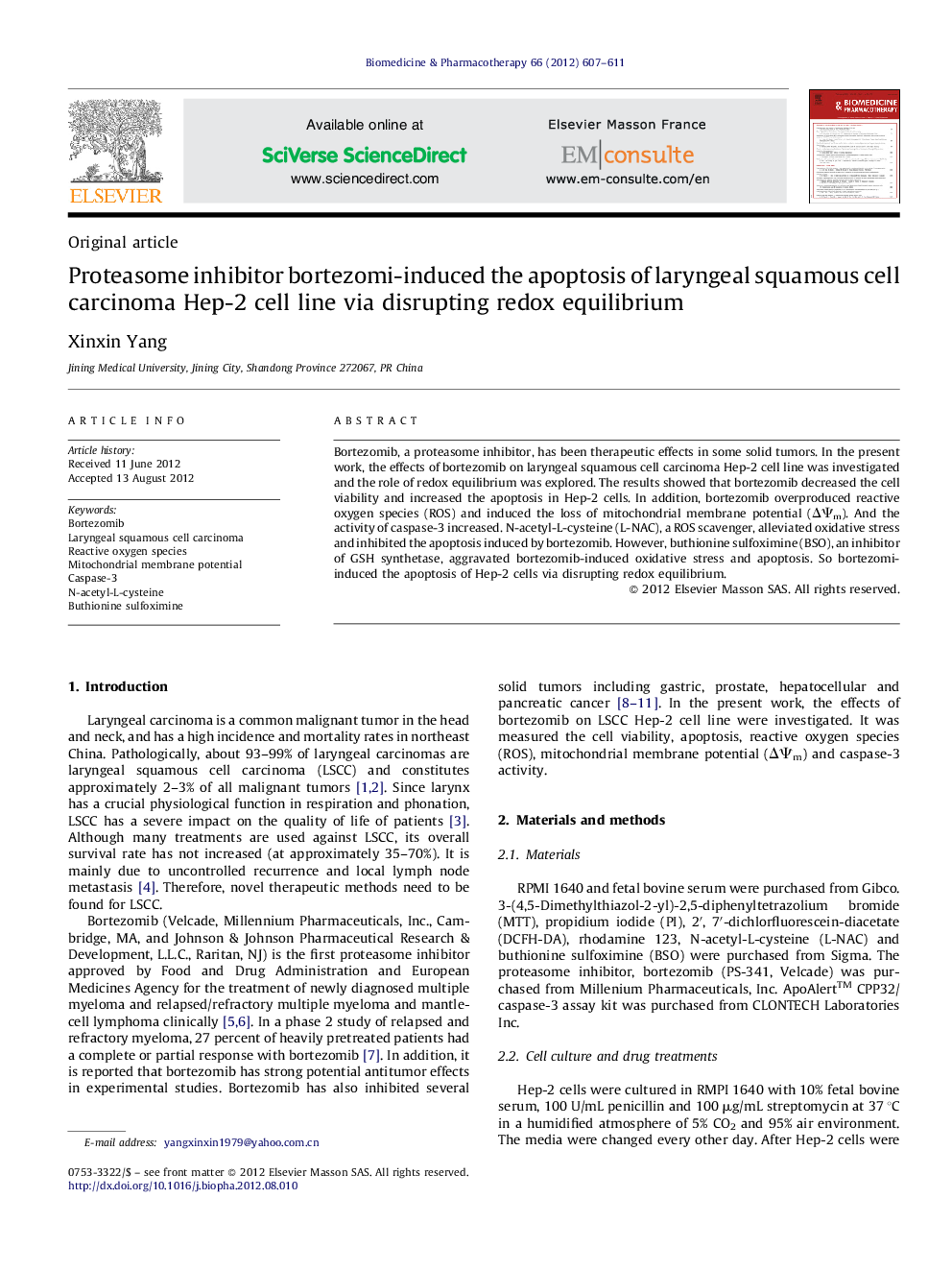| Article ID | Journal | Published Year | Pages | File Type |
|---|---|---|---|---|
| 2524305 | Biomedicine & Pharmacotherapy | 2012 | 5 Pages |
Bortezomib, a proteasome inhibitor, has been therapeutic effects in some solid tumors. In the present work, the effects of bortezomib on laryngeal squamous cell carcinoma Hep-2 cell line was investigated and the role of redox equilibrium was explored. The results showed that bortezomib decreased the cell viability and increased the apoptosis in Hep-2 cells. In addition, bortezomib overproduced reactive oxygen species (ROS) and induced the loss of mitochondrial membrane potential (ΔΨm). And the activity of caspase-3 increased. N-acetyl-L-cysteine (L-NAC), a ROS scavenger, alleviated oxidative stress and inhibited the apoptosis induced by bortezomib. However, buthionine sulfoximine (BSO), an inhibitor of GSH synthetase, aggravated bortezomib-induced oxidative stress and apoptosis. So bortezomi-induced the apoptosis of Hep-2 cells via disrupting redox equilibrium.
